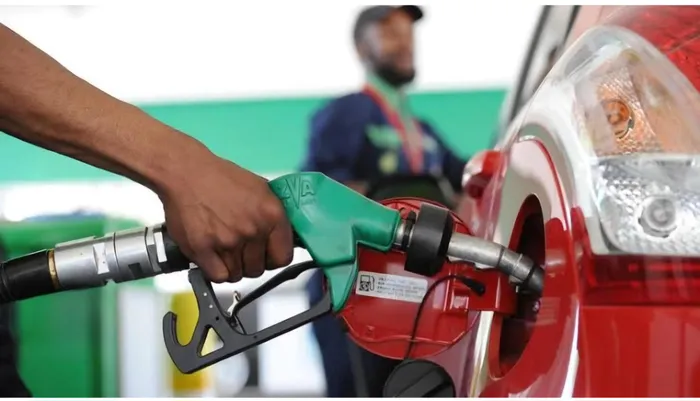Pray for entrepreneurs: the devil is in the details
22 ON SLOANE

Finance Minister Enoch Godongwana’s Budget 3.0 may have spared us a VAT hike curse, but he unleashed a slow poison in the form of a 4% inflation-linked increase in the fuel levy, the writer says.
Image: Picture: IOL
Finance Minister Enoch Godongwana’s Budget 3.0 may have spared us a VAT hike curse.
Still, he did unleash a slow poison in the form of a 4% inflation-linked increase in the fuel levy, adding 16 cents per litre on petrol and 15 cents on diesel, effective from 4 June 2025.
Small businesses that dodged the blue “VAT devil” now face a red “fuel-levy demon” pushing up transport and input costs, squeezing already razor-thin margins.
Between a VAT hike that would have been a broad-based bite or a fuel levy that’s a sneaky surcharge on every wheel that turns, entrepreneurs must decide which monster stings less—and learn to sidestep whichever serpent gets under their bonnets.
The last time South Africans danced to “the devil made me do it” was during the 2021 budget speech, cooked by the late Finance Minister, Tito Mboweni.
On that fateful day, fuel levies were increased by 27 cents per litre- comprising 15 cents for the general fuel levy, 11 cents for the Road Accident Fund levy, and 1 cent for the carbon fuel levy.
I won’t bore you with the political mixed reactions of that time, which amounted to nothing more than hot air- without even a hint of Nando’s aroma.
Even the term “small business” appeared only once in a 23-page budget speech document, where it was noted that the Department of Small Business Development has allocated R4 billion over the medium term to township and rural enterprise development, including blended finance initiatives.
Only the devil knows who bewitched South African small businesses to remain an invisible, tiny dot -in the corridors of power.
Once again, if we take a step back to the 2020 budget speech crafted by the late Minister Tito Mboweni, the ghost of the fuel levy appeared mysteriously much like his famously unusual 'tin fish' cooking times. (R.I.P. Chef Tito, we miss you). In that 2020 budget speech, the fuel levy increased by 25 cents per litre, with 16 cents going to the general fuel levy and 9 cents to the Road Accident Fund levy.
I’m not against the experts’ sentiment that the scope of fuel primarily relates to transport-related costs, while VAT is broad-based, covering all goods and services.
However, the Finance Ministers’ budgets from 2020, 2021, and now in 2025 have been “hacking” small business pockets with sneaky fuel levies.
South Africa’s small-business battleground is quietly becoming a tax buffet.
For SMMEs that earn a living out of an already slim profit margin, these charges are like tiny termites taking a bite from every rand of hard-won revenue. What looks like a humble R0.16/L extra at the pump is a profit drain for township SMMEs. Every extra penny on fuel will be etched in every invoice that lands in the mailboxes of small businesses.
Logistics companies, where fuel accounts for 40% of costs, could see operating expenses rise, further eroding their razor-thin margins.
Retailers and service providers who depend on delivery services now face a choice: absorb the cost or pass it on to customers, risking churn in a price-sensitive market. Taxi commuters will also feel the pinch, as it is one of the few industries where fare discounts offer a rare sanctuary.
The budget speech resembles a spiritual brawl in Bushiri’s church arena, where the worshipers spared from the curse are those who hope and learn to pray, “go deeper Papa,” because the devil is in the details of every budget tweak.
To survive, savvy small business owners must incorporate these extra levies into their pricing, tighten logistics, embrace technology, and get creative on how to manage the levy vampire—at least until the next budget brawl.
Bongani Ntombela is an executive: programmes at 22 On Sloane.

Bongani Ntombela is the Programmes Director at 22 On Sloane, Africa’s Largest Entrepreneurship Campus.
Image: Supplied